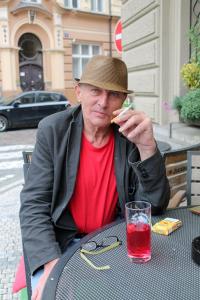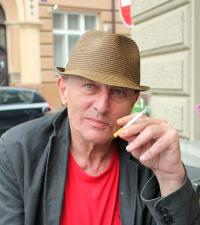One should live in such a way that one would never have to be ashamed of anything

Download image
Pavel Zajíček was born April 15, 1951 in Radotín near Prague. He has been involved in the arts and artistic creation since he was a young man. The Soviet occupation in August 1968 and the beginning of the so-called normalization period brought about not only the termination of his studies of civil engineering, but his hopes for officially recognized artistic activity became lost as well and Pavel joined the underground movement. He continued in his creative activity and together with Mejla Hlavsa he established the music band DG 307 in 1973. He worked as a theatre stagehand, as a forest worker or he earned his living by making paper bags. In 1976 he was sentenced to one year of imprisonment for alleged riotous conduct in the trial with the band Plastic People. He subsequently signed Charter 77 and in 1980 he emigrated as a result of increased pressure and bullying by the police and the communist regime (so-called operation Asanace). At first he went to Göteborg in Sweden and later to New York, where he focused mainly on visual arts. After the Velvet Revolution in 1989 he returned to Prague, at first only temporarily and later permanently. He continued in his artistic, literary and musical activities and he performed with the band DG 307 as well as with other art projects, such as in the autobiographic theatre performance Pustina (“Wasteland”). Pavel Zajíček passed away on March, the 5th, 2024.

